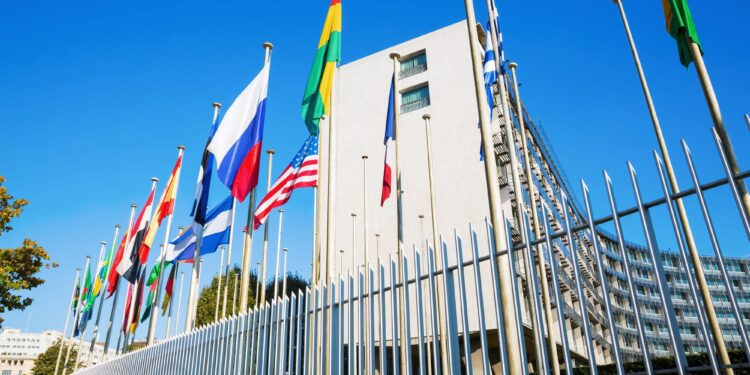UNESCO and CODATA have joined forces to release a new suite of resources aimed at advancing open science practices for effective crisis response. In a collaborative effort to enhance global preparedness and resilience, these tools are designed to facilitate transparent data sharing, foster international cooperation, and accelerate scientific innovation during emergencies. The initiative underscores the growing recognition of open science as a critical component in addressing complex challenges such as pandemics, natural disasters, and humanitarian crises.
UNESCO and CODATA Collaborate to Enhance Open Science Infrastructure for Crisis Management
In a significant stride toward strengthening global crisis management, UNESCO and CODATA have teamed up to develop a comprehensive suite of open science resources. These tools are designed to facilitate faster, more effective responses to emergencies by promoting transparent data sharing and collaboration among researchers, policymakers, and relief organizations. By harnessing the power of open science infrastructure, decision-makers can access real-time data and evidence-based insights, enabling well-coordinated strategies during natural disasters, pandemics, and other critical events.
The initiative highlights key components essential for a resilient crisis response framework, including:
- Open data repositories offering unrestricted access to crucial datasets
- Standardized protocols for data collection and sharing across borders
- Capacity-building programs to empower local responders and scientists
- Collaborative platforms enabling swift multi-stakeholder engagement
| Resource | Purpose | Impact |
|---|---|---|
| Global Data Hub | Centralized platform for crisis data | Enhances accessibility and sharing |
| Open Science Toolkit | Guidelines and tools for researchers | Supports standardization and quality |
| Training Modules | Capacity building for local teams | Improves readiness and response speed |
Unlocking Data Sharing Potential to Accelerate Global Emergency Response Efforts
In a groundbreaking move to enhance global emergency response, UNESCO and CODATA have unveiled a suite of resources designed to facilitate open science and seamless data sharing among international stakeholders. These tools aim to break down technical and bureaucratic barriers, ensuring that critical information – from epidemiological data to disaster impact assessments – is made accessible in real time. By fostering an environment of transparency and collaboration, the initiative promises to empower decision-makers and responders with timely, evidence-based guidance, ultimately saving lives and mitigating the consequences of crises worldwide.
Key features of the new resources include:
- Interoperable data standards for rapid integration across diverse platforms and agencies
- Guidelines for ethical data sharing that respect privacy while maximizing utility
- Training modules to build capacity in open science principles among emergency responders
| Resource | Description | Impact |
|---|---|---|
| Data Sharing Framework | Protocol for harmonizing emergency datasets | Ensures rapid data exchange |
| Open Access Repository | Central hub for crisis-related publications and datasets | Facilitates knowledge dissemination |
| Training Workshops | Hands-on sessions for emergency personnel | Builds practical open science skills |
Recommendations for Policy Makers to Integrate Open Science Practices in Disaster Preparedness and Relief
Policy makers are urged to embed open science principles within the frameworks governing disaster preparedness and relief efforts. Prioritizing transparency, data sharing, and international collaboration can accelerate response times and improve the accuracy of information during crises. Governments should establish clear mandates encouraging the open publication of research, real-time data exchange between agencies, and active engagement with scientific communities. Investing in interoperable digital platforms will enable seamless data flow, fostering informed decision-making when every second counts.
To ensure effective uptake, the following strategies can be employed:
- Develop regulatory incentives that reward open data contributions related to disaster risks and impacts.
- Facilitate multidisciplinary coordination among scientists, emergency responders, and policymakers by standardizing open data formats.
- Support capacity-building programs to enhance digital literacy and open science skills at all administrative levels.
- Encourage public-private partnerships to expand access to critical datasets and technological resources.
| Policy Focus | Key Action | Expected Impact |
|---|---|---|
| Data Governance | Mandate open-access repositories for crisis information | Faster data sharing and crisis mapping |
| Collaboration | Create cross-sector open science committees | Enhanced multi-agency coordination |
| Capacity Building | Implement training programs on open science tools and data management | Improved skills for timely data analysis and dissemination |
| Technology & Infrastructure | Invest in interoperable digital platforms for real-time data exchange | Seamless information flow accelerating decision-making |
| Public-Private Partnership | Establish collaborations to share critical datasets and innovate solutions | Expanded access to data and technological resources |










